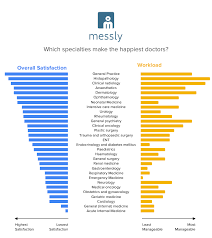Exploring Culinary Specialties Around the World
Specialties in the culinary world are like treasures waiting to be discovered. From savory dishes to sweet treats, each region boasts its own unique flavors and techniques that captivate the taste buds and tell a story of cultural heritage.
French Cuisine: The Art of Haute Cuisine
French cuisine is renowned for its elegance and sophistication. From delicate pastries like croissants and macarons to hearty dishes such as coq au vin and ratatouille, French specialties showcase a balance of flavors and attention to detail that have made them famous worldwide.
Japanese Delicacies: A Symphony of Umami
Japanese specialties are a celebration of simplicity and purity. Sushi, sashimi, tempura, and ramen are just a few examples of dishes that highlight the umami flavor unique to Japanese cuisine. The meticulous preparation and presentation of these specialties reflect Japan’s reverence for food as an art form.
Mexican Flavors: A Fiesta for the Senses
Mexican cuisine is a vibrant tapestry of colors, textures, and spices. From tacos al pastor to mole poblano, Mexican specialties are a fusion of indigenous ingredients with Spanish influences. Each bite is an explosion of flavors that reflects Mexico’s rich culinary history.
Indian Spice: A Melody of Aromas
Indian specialties are a symphony of spices that dance on the palate. Dishes like biryani, tikka masala, and dosas showcase the diversity and complexity of Indian cuisine. The bold flavors and aromatic spices used in Indian cooking create an unforgettable culinary experience.
In conclusion, culinary specialties from around the world offer a glimpse into different cultures and traditions through food. Whether you’re indulging in French pastries, savoring Japanese sushi, enjoying Mexican street food, or exploring Indian curries, each specialty tells a story that transcends borders and unites people through the universal language of food.
6 Essential Tips for Choosing and Excelling in Your Specialty
- Choose a specialty that you are passionate about.
- Research different specialties to find the right fit for you.
- Consider the job market and demand for professionals in your chosen specialty.
- Seek advice from professionals already working in the field you are interested in.
- Gain practical experience through internships or shadowing opportunities.
- Continuously update your skills and knowledge to stay competitive in your specialty.
Choose a specialty that you are passionate about.
When it comes to selecting a specialty in any field, including culinary arts, one of the most important tips is to choose something that you are truly passionate about. Passion is the driving force behind creativity, dedication, and excellence. By selecting a culinary specialty that ignites your enthusiasm and fuels your creativity, you are more likely to excel in that area and create dishes that truly resonate with your heart and soul. Your passion will shine through in every aspect of your work, from the ingredients you select to the techniques you employ, ultimately leading to a fulfilling and rewarding culinary journey.
Research different specialties to find the right fit for you.
Researching different specialties is key to finding the perfect culinary fit for you. By exploring a variety of dishes from around the world, you can discover flavors, techniques, and ingredients that resonate with your palate and passion for cooking. Whether you’re drawn to the elegance of French cuisine, the simplicity of Japanese delicacies, the vibrancy of Mexican flavors, or the spice of Indian dishes, taking the time to research and taste different specialties will help you uncover your culinary identity and create a unique cooking style that reflects your personal tastes and preferences.
Consider the job market and demand for professionals in your chosen specialty.
When delving into a specific culinary specialty, it is crucial to consider the job market and demand for professionals within that field. Understanding the current trends and requirements can provide valuable insight into the viability and potential growth opportunities in your chosen specialty. By researching the demand for professionals in the industry, you can make informed decisions about your career path and ensure that you are equipped with the skills and knowledge needed to thrive in a competitive job market.
Seek advice from professionals already working in the field you are interested in.
Seeking advice from professionals already working in the field you are interested in can provide invaluable insights and guidance. These individuals have firsthand experience and knowledge that can help you navigate the complexities of the industry, avoid common pitfalls, and make informed decisions. By tapping into their expertise, you can gain a deeper understanding of the field’s nuances, trends, and best practices, setting yourself up for success as you pursue your own path in that specialty.
Gain practical experience through internships or shadowing opportunities.
To truly immerse oneself in the world of culinary specialties, gaining practical experience through internships or shadowing opportunities is invaluable. These hands-on experiences provide aspiring chefs with the chance to work alongside seasoned professionals, honing their skills, and learning the intricacies of crafting specialized dishes. By shadowing experts in the field, individuals can observe firsthand the techniques, ingredients, and attention to detail required to master culinary specialties. This practical experience not only enhances technical abilities but also offers insight into the passion and dedication necessary to excel in the world of gastronomy.
Continuously update your skills and knowledge to stay competitive in your specialty.
Continuously updating your skills and knowledge is essential to staying competitive in your specialty. In the ever-evolving world of culinary arts, staying stagnant means falling behind. By keeping abreast of the latest trends, techniques, and ingredients, you not only enhance your expertise but also ensure that you can meet the demands of a dynamic industry. Embracing lifelong learning in your culinary journey allows you to push boundaries, innovate, and ultimately excel in your chosen specialty.

